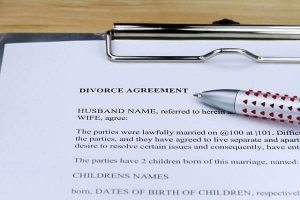Experienced attorney Assisting Divorcing Couples in Florida

The classic example of this would be a stay-at-home spouse. One spouse works to support the household, while the other cares for the children. During the divorce, that non-working spouse must seek gainful employment, but it may take him or her awhile to not only get a job, but possibly upgrade his or her skills to receive the compensation needed to support the family. In this instance, the courts may award rehabilitative support to that non-working spouse until he or she is able to support him or herself (and any children present) financially.
The court can require the greater earner to pay for schooling and living expenses while the non-working or lesser earning spouse completes training, education, and gets a job.
Qualifications
In order for a spouse to receive rehabilitative support, he or she must use the assistance of an attorney. An attorney will create a specific plan that focuses on how long it will take to receive necessary education, and the amount of living expenses that will be incurred while going to school. The attorney will also assess whether there will be any additional time required until the spouse is financially secure and no longer need support.
Can a Spouse Request a Stop on the Rehabilitative Support?
The paying spouse can petition the court for a modification of the alimony awarded. This petition must show that the other party has gainful employment and that the income is sufficient enough to grant a release from alimony.
Equally, the spouse receiving support can request a modification to continue receiving the support, especially if he or she has had a financial change in circumstances, or if his or her education was delayed.
The Length of Marriage Matters
The state of Florida recognizes that the length of the marriage will determine alimony payments and their duration. The state classifies the lengths into three categories:
- Short Term – This is a marriage that lasted less than seven years.
- Moderate Term – This marriage lasted seven or more years, but less than 17 years.
- Long Term – This marriage lasts 17 or more years.
Speak with a Family Law Attorney Regarding Your Spousal Support Concerns
If you are worried about how you will rehabilitate after divorce or if you think your case qualifies for a form of spousal support, speak with the family law attorney at Beller Law, P.L. today. We are here to help you receive the support that you need and get a fair settlement in your Florida divorce. Schedule a consultation now by calling 904-288-4414 or requesting more information online.
